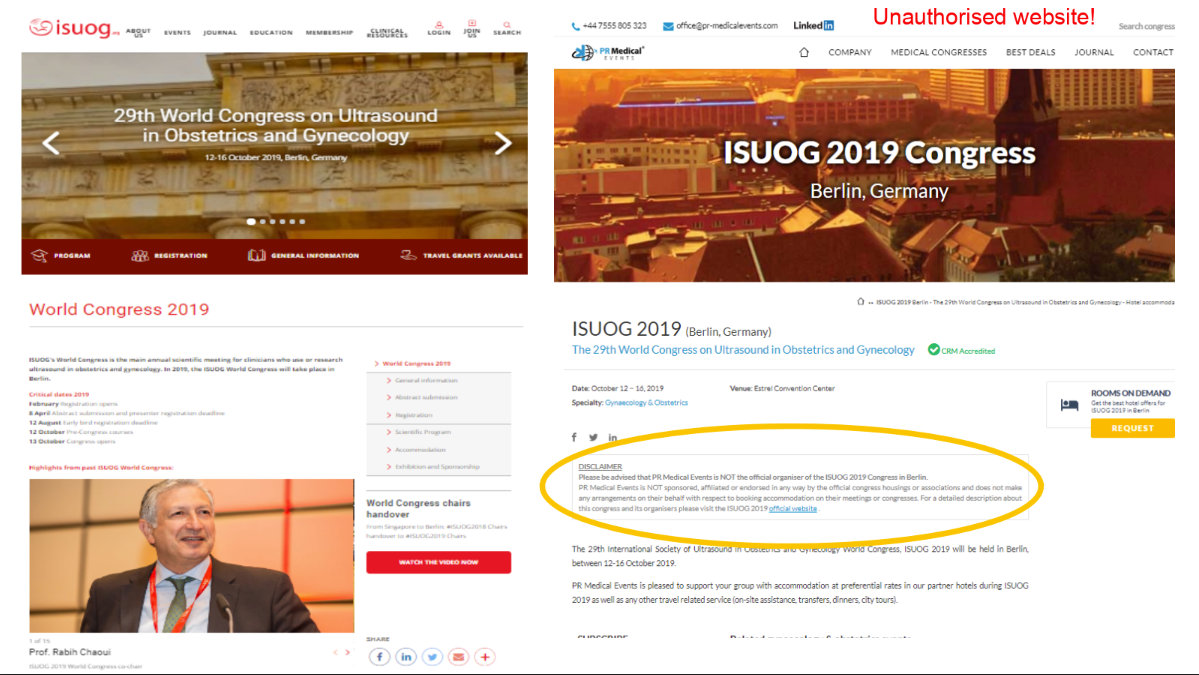Exposing predatory conferences
The increase of predatory conferences jeopardises the continuing future of legitimate analysis events. But could meeting IDs function as solution?
Right now, predatory conferences ought to be on your own radar. These “scholarly” activities are usually organised on a strictly for-profit basis, pay lip services to peer evaluation, and publish just about anything sent their method – for a fee, needless to say. (A co-employee professor submitted a nuclear physics document written making use of iOS autocomplete to 1 such meeting. It passed examine with flying colours.)
For a long time, shady individuals have already been exploiting early-profession researchers’ eagerness to create. But unless you had been desperate – or painfully naive – false conferences were pretty an easy task to spot and steer clear of. Up till today.
Efficient predators adapt, and today’s variety of predatory conference is really a far better mimic of the real thing . Their organisers are usually tech-savvy enough to produce counterfeit internet sites that masquerade as those owned by learned societies. I understand of a minumum of one clinical association that got its meeting site cloned by scammers and positioned online at a website that has been just near enough to genuine to become believable.

Spot the distinction: The web site for the real meeting is on the still left.
Photograph: Gabrielle Mouterde ISUOG
These websites tend to be filled with fabricated social evidence like committee web pages falsely declaring involvement from eminent experts and occasion endorsements from joyful “delegates”.
The rise and increase of counterfeit conferences
From artificial medicines to knock-off watches, counterfeiting will be flourishing online . And there’s a lot of money at enjoy in the scholarly market. Earlier this year, the united states Federal Business Commission fined OMICS Publishing , a well-known way to obtain predatory conferences and journals, $50 million . This is actually the sum of money scientists paid OMICS between 2011 and 2017, based on the FTC.
And the problem’s just likely to get worse. Whenever we very first launched the meeting directory PaperCrowd , what started as a trickle of listings for predatory conferences quickly risen to a surge. (We’ve since put checks set up to assess each event’s validity.) Sufficient reason for serious cash to have fun with for, the ranks of counterfeit conferences will continue steadily to swell. The individuals behind them are starving and they’re increasing bolder. This isn’t edge-of-the-internet things designed to ensnare several randomers; an increasing amount of seasoned experts are using the bait .
Just what exactly will this mean for the study neighborhood? Still left unchecked, predatory occasions will harm our community’s rely upon the legitimacy of conferences. We’re not however at a spot where established meeting organisers say, ‘our figures are usually down 20% because this business possess stolen our delegates.’ Or even, ‘we’re down because individuals who’d usually come don’t know very well what they are able to trust.’ But, I believe it’s just a matter of period before we start exceptional fallout.
The crazy west of the scholarly local community
Area of the cause predatory conferences operate virtually uncontested is basically because it’s the crazy west on the market. There’s no such factor as a meeting regulator, you don’t have to get acceptance from one to appoint yourself the organiser of a study event, and you can find no laws and regulations governing them.
A lot of people don’t think about conferences in this manner but: anyone can make a research meeting. And, with increasing regularity, they do.
You can find publisher and organiser blacklists and web sites to make researchers alert to predatory conferences. And I understand some researchers who’ve been fraudulently detailed as committee associates are delivering cease and desist letters. However in every situation I’ve noticed, the onus will be firmly on individuals to do this instead of on academic and study bodies.
But while research activities remain beyond a organized framework, we depart them – and the scientists who seek to wait them – susceptible to the risk that predatory conferences pose.
Taming the west: A task to identify and monitor conferences
As the FTC went the legal path, it’s my estimation that the only path to defeat predatory conferences will be on the web battleground. We have to give researchers the various tools in order to unambiguously measure the trustworthiness of any given meeting.
A persistent identifier (PID) is really a long-lasting reference – generally a string of symbols or amounts, or perhaps a URL – that’s utilized to permanently recognize and monitor a physical or electronic object. From social safety quantities to barcodes on our cereal boxes, PIDs get many types. And they’re already spending so much time for our community by means of electronic object identifiers (DOIs) for journal posts and ORCID iDs for experts.
The wonder of a PID will be that it'll always refer to an individual article or researcher. Therefore, for example, we are able to now accurately monitor which geographical journal a papers was released in. And which John Smith authored it. But what if we expanded this trackability to conferences?
FREYA is really a task from the European Commission which aims to boost discovery, routing, retrieval and accessibility for open technology . Through actions like integrating PID techniques and marketing engagement with scientists, FREYA aims to lay the groundwork for PIDs to create records of research even more dependable and traceable.
One section of this is worried about extending the energy of PIDs to analyze conferences . The meeting PID working team within FREYA contains representatives from main publishers, discovered societies and journals who talk about my fascination with developing equipment for unambiguously determining conferences and meeting collection.
Not merely will a project such as this enhance discoverability and retrieval of released analysis, but it’s furthermore the initial step towards beginning to sign up for the dots in attributing measurable high quality and worth to conferences . PIDs could pave just how for conference impact elements, which may give us very clear markers for reputable conferences who display dedication to rigorous peer evaluation and low-high quality conferences where in actuality the primary concentrate is profit.
Can the study community rally behind meeting PIDs?
For the very first time, our neighborhood has the potential to provide conferences a way to obtain truth predicated on unbiased accurate information. And we are in need of it as part of your. But there’s only a handful of individuals in our community discussing predatory conferences. Nearly none of the decision-makers at main associations I meet have even it on the agenda.
You can find even fewer discussing PIDs. Minus the backing of the meeting industry, PIDs won’t get to a crucial mass. And with out a critical bulk of PIDs, we might never have the various tools to expose predatory conferences for forever.
Optimism bias describes our inclination to task unrealistically optimistic outcomes. We underestimate our odds of experiencing identification theft and overestimate our capability to deliver task X by deadline Y. Optimism bias qualified prospects us to expect that people won’t end up being duped by scammers or have got our meeting cloned.
However it occurs. And until we’ve obtained a remedy to predatory conferences that’s got community-wide assistance, it will continue steadily to happen with improving frequency.
Desire to discover more about the functioning group? Read about meeting PIDs . Or fall me a range if you’d prefer to talk.
And for the time being, tell your users to brush through to the indications of a shady meeting .
When Paul had been an engineering pupil, he didn’t even understand what a conference document was. He then dipped his toe in the study conference planet, realised how awful the program was, and made a decision to create Ex Ordo. Occasionally, life could be funny like this.
